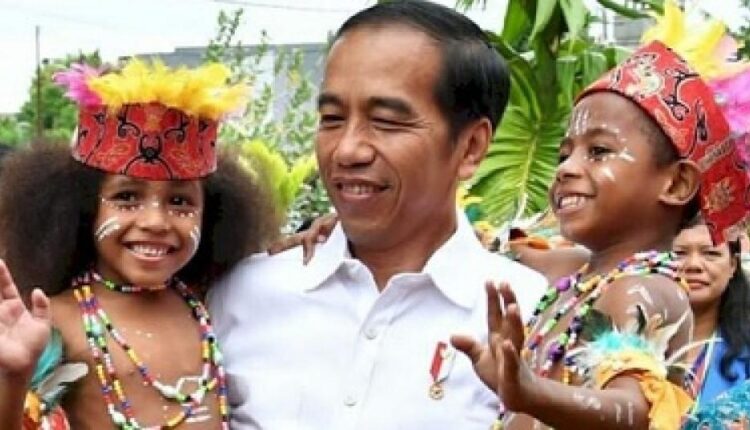DOB Papua Accelerate Welfare and Equitable Development
By: Rebeca Marian)*
The New Autonomous Region (DOB) of Papua will certainly be able to accelerate welfare and also equitable development in the Earth of Cendrawasih. The reason is that the Papua New Guinea will shorten the span of control of the government bureaucracy, making it easier to supervise various development policies and programs in Papua.
The Government of the Republic of Indonesia (RI) will certainly continue to strive to be able to accelerate welfare and also equity in the country, especially in areas that have so far received little attention and seem Javacentric. Therefore, in the era of President Joko Widodo, there is equality even to all corners of the archipelago, including Papua.
One of the ongoing efforts is the New Autonomous Region (DOB) policy. Therefore Hengky Yaluwo as the Regent of Boven Digoel Papua Province emphasized that the policies currently being pursued by the Government are indeed capable of realizing people’s welfare because when there is regional expansion, of course the acceleration of equitable development and public improvement services will be very effective to do.
In addition, the Regent of Boven Digoel also considered that precisely with the implementation of the new autonomous system policy in Papua, there would be job opportunities for indigenous Papuan children so that it would be very beneficial for the entire community. So he firmly stated that he welcomed the Government’s decision to ratify the three new provinces in Papua.
Moreover, Hengky also invites all young generations on Earth of Cendrawasih to be able to take on their role, namely by making the best use of the opportunities that exist after the formation of the new autonomous regions so that they do not continue to be left behind with other regions and so that Papua can also compete with other regions. other areas in Indonesia.
So far, the House of Representatives (DPR) of the Republic of Indonesia (RI) has ratified the Draft Law (RUU) on the formation of new autonomous regions in Papua, which will be separated into three regions, namely Central Papua Province, Central Highlands Papua Province and West Papua Province. South Papua. The concerns of a number of parties with the expansion of this region were actually immediately denied because this policy was in accordance with the mandate of Law no. 2/2021 in Article 76 which states that the expansion must pay attention to various aspects such as politics, administration, law, unity, socio-culture, readiness of human resources, basic infrastructure and also economic capacity.
The opinion expressed by the Regent of Boven Digoel was also agreed by the Minister of Home Affairs (Mendagri) Muhammad Tito Karnavian. He also emphasized that indeed with the Papua New Guinea policy that has been ratified, it will certainly accelerate development and also increase welfare for the Papuan people themselves.
This is because the original proposal regarding the plan for regional expansion in Papua was conveyed directly from the aspirations of the Papuan people starting from Regional Heads, traditional leaders, religious leaders to women leaders. So it is clear that the Government is very accepting of all the aspirations of the people. On the other hand, Ahmad Doli Kurnia Tandjung as Chair of Commission II stated that the preparation of the 3 Papua New Guinea Bills was indeed very representative of all people’s aspirations.
Meanwhile, Coordinating Minister for Political, Legal and Security Affairs Mahfud MD also emphasized that the Papua New Guinea policy had taken into account geospatial aspects, organizational design, filling in the DPRD and also the funding or budget to be used. With that, the Community Resources (HR) needed for the welfare of Papua will immediately prioritize recruiting Papuan Orang Asli (OAP) with a ratio of 8 to 10.
The recruitment of State Civil Apparatus (ASN) will also be leveled based on the respective Regional Governments (Pemda) adjusted to the quota of OAP that has been mentioned so that there will be equal distribution from the ministry, institutional to local government levels.
Chairman of the Working Committee (Panja), Junimart Girsang emphasized that the policy of the New Autonomous Region in Papua will indeed be very useful to overcome all problems and conflicts of inequality that have been blowing so far because the standard of living of the people will automatically also be raised. In addition, there will also be recognition and respect for the basic rights of OAP which may not have been obtained during the period before President Jokowi, and finally there will be governance that can be implemented very well.
How not, the article in the process of forming the bill itself has also brought together various indigenous Papuan groups who have an interest, including several working visits to Merauke Regency and Jayapura Regency to be able to dialogue with each other and fill in the things that are needed.
